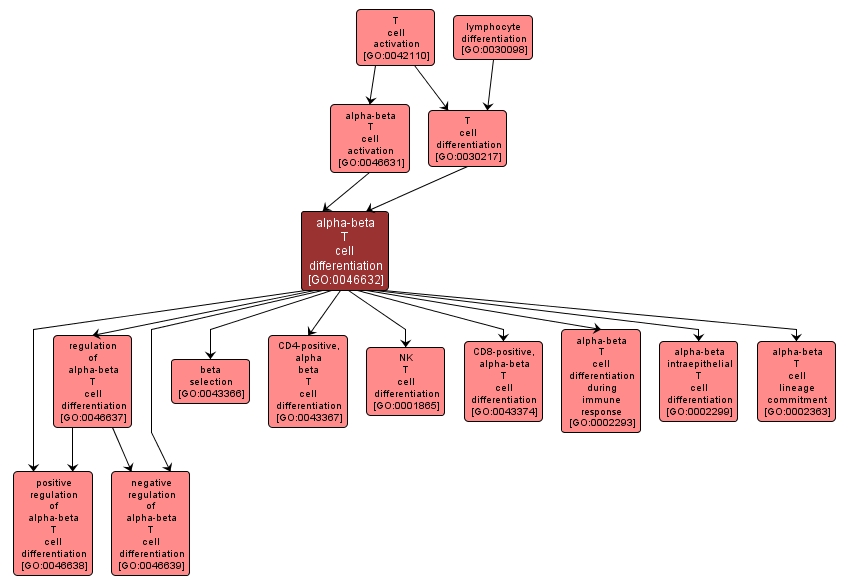GO TERM SUMMARY
|
| Name: |
alpha-beta T cell differentiation |
| Acc: |
GO:0046632 |
| Aspect: |
Biological Process |
| Desc: |
The process whereby a precursor cell type acquires the specialized features of an alpha-beta T cell. |
Synonyms:
- alpha-beta T-lymphocyte differentiation
- alpha-beta T-cell differentiation
- alpha-beta T lymphocyte differentiation
|
|

|
INTERACTIVE GO GRAPH
|














